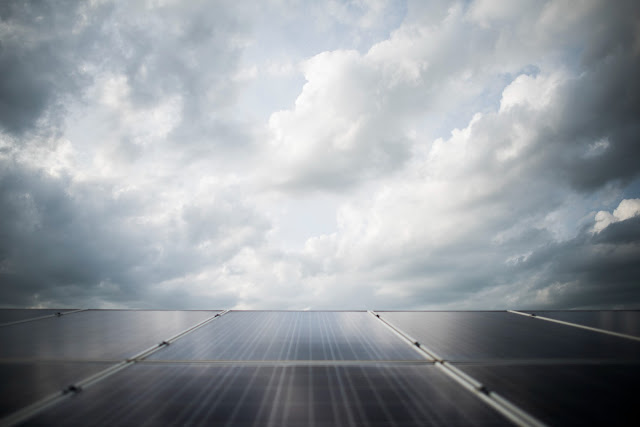Do solar panels work in winter?
Solar panels typically generate electricity throughout the year after installation. In addition to reducing your home's electricity costs, you get clean and efficient energy when you install solar panels. Environmentally friendly energy helps reduce greenhouse gas emissions. And of course, solar panels generate electricity even in winter.
Most people believe that solar
panels only work in hot weather. However, solar panels are known for their excellent
performances across the country. We are going to see how solar panels work in
winter. let's begin
Solar Panels During Winter
If you're thinking about going
solar, don't let the thought of winter put you off. Solar energy is one of the
most powerful and readily available sources globally, which works well even
during winter. Contrary to popular belief, solar panels generate electricity
from sunlight, not heat.
Photons of sunlight activate
electrons in the silicon particles when they strike the cells of the solar
panels. The movement of electrons creates electrical currents, which you can
use to power your home.
During winter, the sun still
shines. When sunlight hits the photovoltaic cells of a solar panel, electricity
is generated. Cold weather is beneficial for the efficiency of solar panels.
Since there is no excess heat, solar panels can perform well without the risk
of overheating.
Did you know that overheating
affects the performance of solar panels? Above 77ºF, solar panels begin to lose
their efficiency. There is no danger of such a condition in colder climates.
Instead, solar panels supply the required electricity to power houses during
this season. In cases of extreme cold, the use of solar batteries helps in
energy storage. Users can also connect to the grid.
However, power output is reduced
under these conditions. Let's learn about the benefits of solar panels in
winter.
Advantages
of solar panels during winter
- Solar panels rely on available sunlight to generate electricity.
- Cold weather increases the efficiency of solar panel arrays, thus increasing production during the available daylight hours.
- Sunlight passes through the snow to the panels to generate electricity.
- The angle of installation of the solar panel allows the ice to slide while letting in sunlight.
- States located in northern regions have favorable solar incentives.
Disadvantages
of solar panels during winter
- You need to adjust the angles of the solar panels further to capture more sunlight.
- Increase grid demand as less energy is produced.
- Potentially higher costs due to the need to install panels with additional durability ratings and snow-bearing capacity.
- The ice needs to be completely covered with solar panels.
- Shorter days, snow, and cloud cover caused by winter can reduce sunlight, reducing the amount of electricity produced.



Comments
Post a Comment